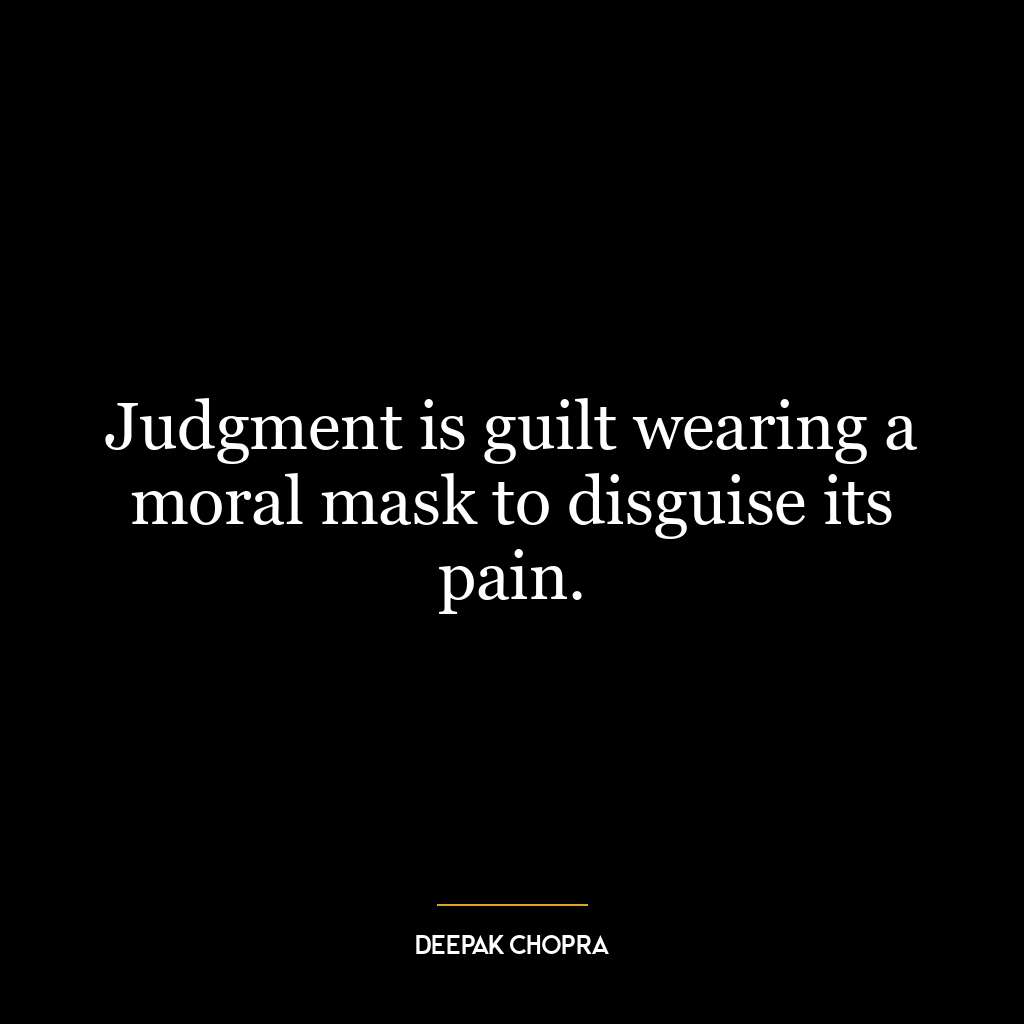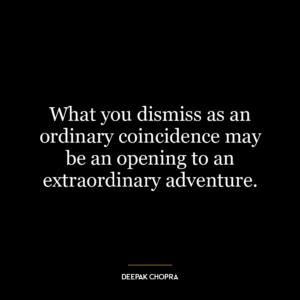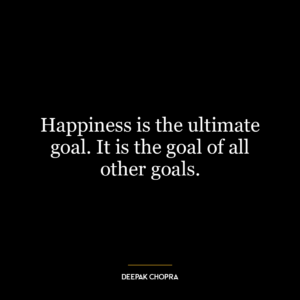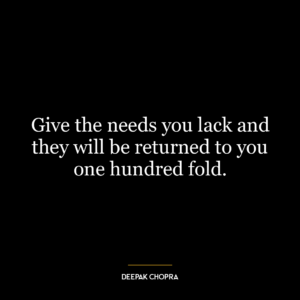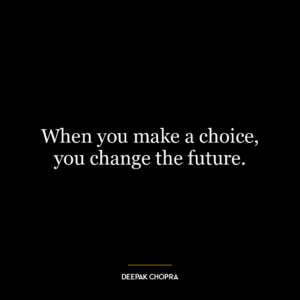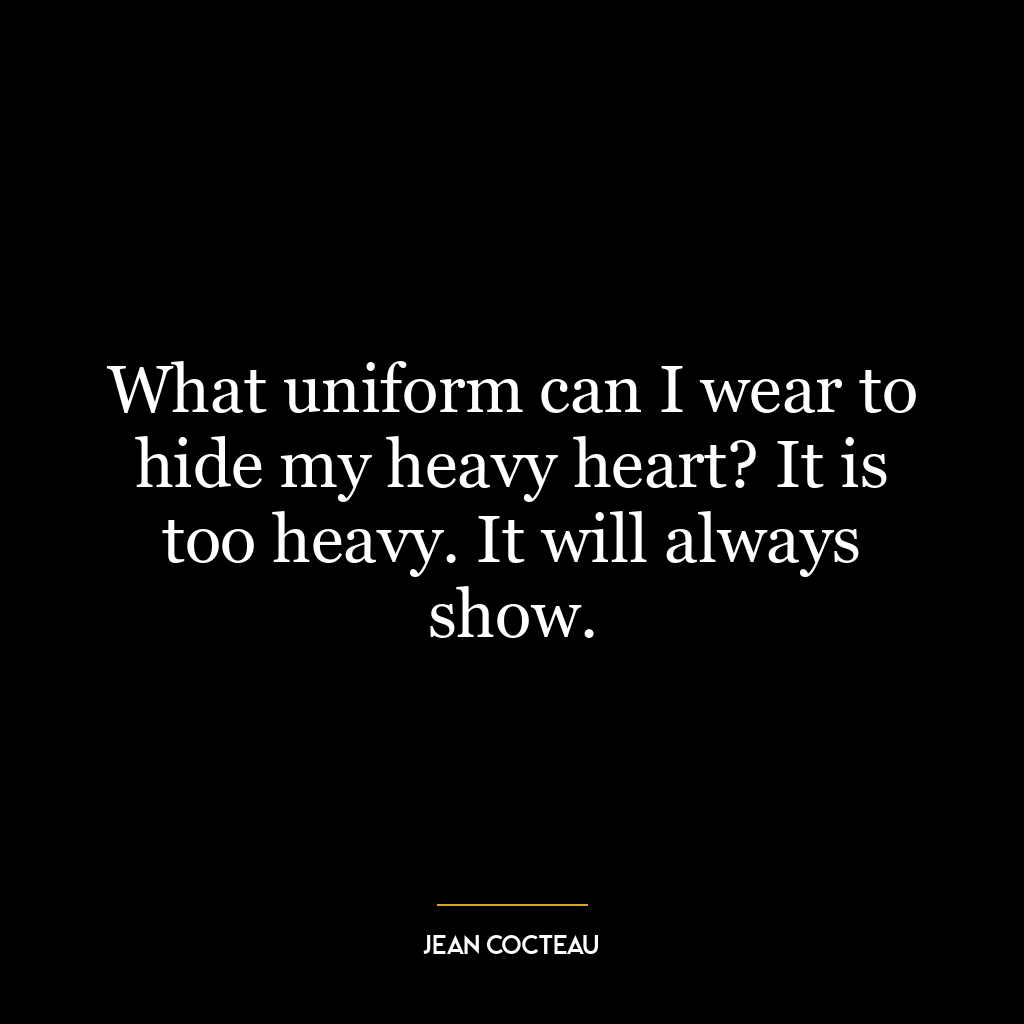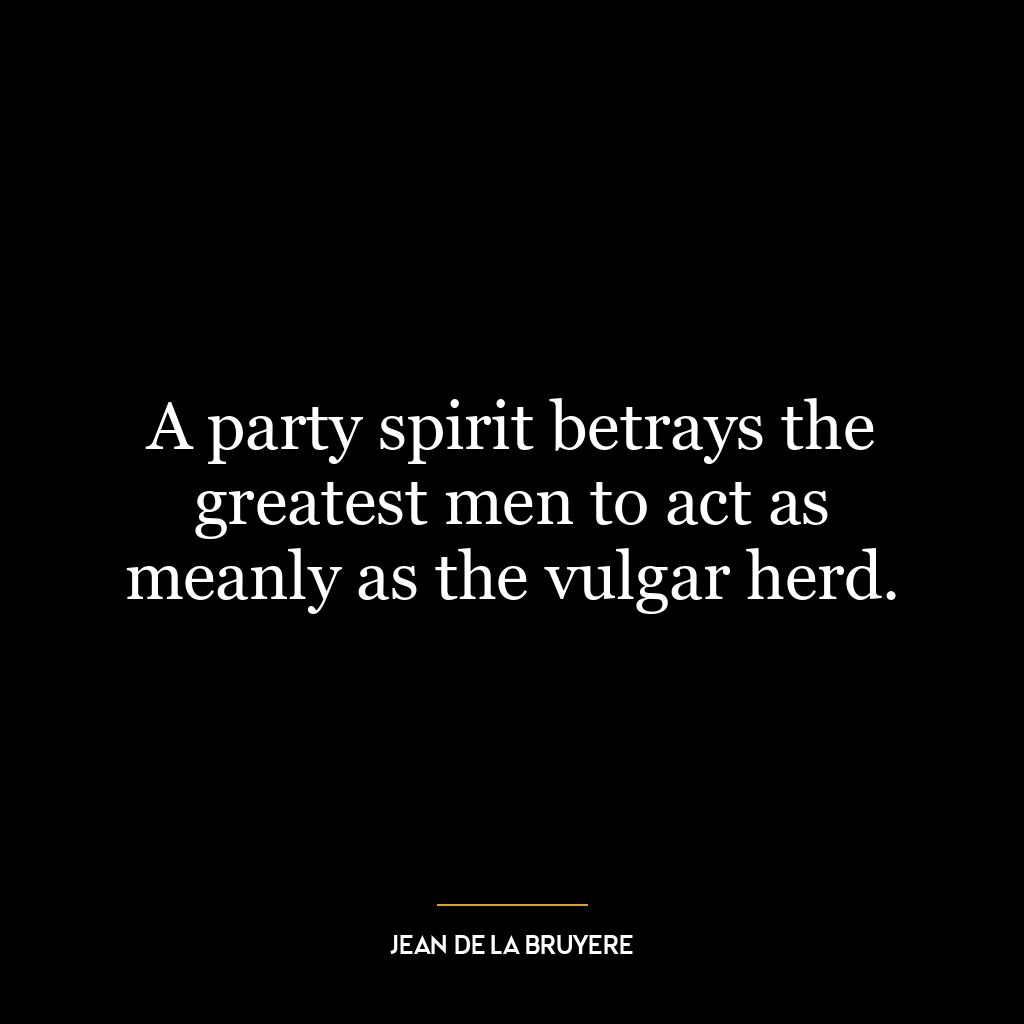This quote suggests that judgment often arises from a place of personal discomfort or pain, masked by the guise of morality. Essentially, when we judge others, it’s often because we’re projecting our own guilt, insecurities, or unresolved issues onto them. The ‘moral mask’ refers to the justification we create for our judgments, often cloaking them in terms of right and wrong, good and bad, to make ourselves feel better.
In a deeper sense, the quote implies a cycle of pain and judgment. Our guilt creates pain, which we then mask with judgment. This judgment, in turn, perpetuates guilt and pain, both in ourselves and in those we judge. It’s a cycle that can only be broken by self-awareness and understanding.
Applying this idea to today’s world, we can see this cycle playing out on social media, in politics, and in everyday interactions. For instance, the ‘cancel culture’ prevalent on social media platforms is a prime example. People are quick to judge and condemn others for their perceived wrongdoings, often without knowing the full story. This might be a reflection of their own guilt or insecurities, which they project onto others under the guise of moral righteousness.
In terms of personal development, understanding this concept can lead to significant growth. It encourages us to look inward when we find ourselves judging others. Instead of projecting our guilt and pain onto others, we can use it as a catalyst for self-reflection and self-improvement. It can help us to break the cycle of judgment and guilt, leading to more compassionate and understanding interactions with others.

